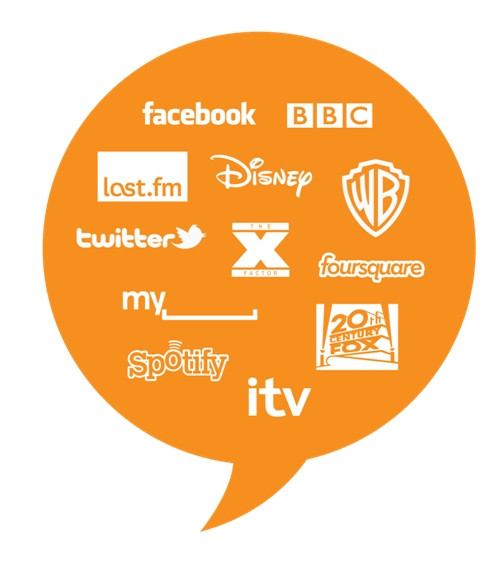 This morning Edelman’s DERT team announced the results of their fifth annual survey on Value, Engagement and Trust in the Era of Social Entertainment. Gail Becker, President of Edelman’s Western U.S. Region presented the results and hosted the event along with Jon Hargreaves Managing Director of Edelman Technology in Europe and a panel of experts including; Matthew Hawn, Vice president Last.fm, Emma Barnett, Digital Media Editor, The Daily Telegraph and Simon Nelson, the Digital Business and Strategy advisor and former controller of multiplatform commissioning at the BBC.
This morning Edelman’s DERT team announced the results of their fifth annual survey on Value, Engagement and Trust in the Era of Social Entertainment. Gail Becker, President of Edelman’s Western U.S. Region presented the results and hosted the event along with Jon Hargreaves Managing Director of Edelman Technology in Europe and a panel of experts including; Matthew Hawn, Vice president Last.fm, Emma Barnett, Digital Media Editor, The Daily Telegraph and Simon Nelson, the Digital Business and Strategy advisor and former controller of multiplatform commissioning at the BBC.
We will be sharing the full slideshow on here later today and posting up video snippets of the event for now here are the highlights and some of our thoughts, let us know what you think.
The key stats from the survey:
· 4% of U.K. consumers feel positive about the move to a paywalled service
· 45% of people in the U.K. and 57% in the U.S. believe social networking sites are a form of entertainment
· Personal enjoyment and visual/sound quality continue to top the list of purchase drivers with “being one of the first to have new entertainment” dropping significantly (to 14%, down from 40% in the U.K. and to 17%, down from 41% in the U.S.).
· More than half (52%) of all respondents would like to use a computer to access further entertainment content, and 30% would like to be able to access that content on their mobile phone
· 49% of people in the U.K. and 52% in the U.S. believe they are spending more than a year ago with their mobile phones to access their entertainment, while 59% (U.K.) and 53% (U.S.) spent more time with their laptop
As the study revealed last year, the internet remained the second most frequently turned to form of entertainment for the second year in a row. While television remained the most frequent form of entertainment both in the U.K. and the U.S. (49% and 47% respectively), dropping 8 and 11 percent respectively since 2010.
The Internet as connective tissue
Most sources of entertainment are less used, this just means that people are spreading their consumption wider. It seems that to succeed in the era of social entertainment, entertainment companies must invest in multiple channels of distribution to enable consumers to access their content wherever and whenever. Five years ago the entertainment industry viewed the internet as a threat, but now it’s an opportunity for those same companies to monetise internet content through simple revenue models indeed the internet can be the connective tissue bringing content together.
Overwhelmingly, consumers (84% in the U.K.) feel negatively about the move from free to paid entertainment services. The survey also reveals that paywalls created by entertainment sources for previously free services are being met with feelings of frustration and distrust by users. Some cite the lack of improvement in quality of service, while others state they would suspect a profit motive driven by greed.
The study also delivers insights on how content providers can try to overcome feelings of distrust about paywalls by delivering value in other ways. 87% of U.K. respondents consider visual and sound quality important in making their entertainment purchasing decisions and nearly half (47% in the U.K.) consider the number of devices with which they can access the entertainment.
May 25, 2011 at 1:08 pm
[…] DERT’s fifth annual study looking at Value, Engagement and Trust in an era of Social Entertainment was presented this morning to a packed house at Edel […]